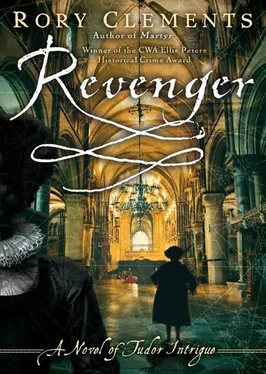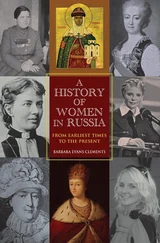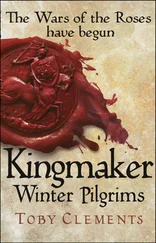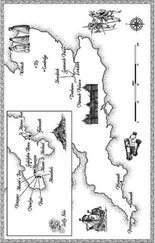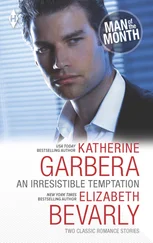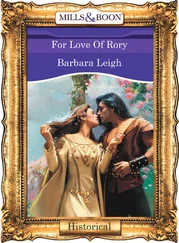
S HAKESPEARE WAITED in a private antechamber at the palace of Whitehall. He wore artisan’s clothes and a cowl, having changed from his formal attire in a spinney on the common land at Chelsea; he could not afford to be recognized in this vast palace of gossips.
At last he was shown through to the office where Sir Robert Cecil was busy planning the Queen’s annual progress west. Concerned by the plague, she had insisted plans be hurried along so that she might be away from the city as soon as possible.
Cecil was issuing instructions to an assistant on the route to be taken and the provisions required. Elizabeth’s luggage would be carried on four hundred wagons. She would need stabling and feed for her two thousand five hundred horses on each stage of the journey. She would be accompanied by hundreds of guards, knights, courtiers, and other dignitaries, many with entourages of their own. It would be like a town on the move.
It occurred to Shakespeare that Cecil’s office was the sort of room Walsingham would have favored: austere and businesslike. Yet this was more ordered than Walsingham’s office had ever been. Tables were bare save for the document Cecil was working on at that moment; files of correspondence were neatly stacked on shelves. The neatness told much about the precise workings of Cecil’s mind. Also telling were his quiet, though costly, clothes. On his feet he wore elegant pantoufles , slippers faced in dark blue velvet with a gold braid.
He did not seem pleased to see Shakespeare. “I trust you were not followed here,” he said abruptly.
“I was not, Sir Robert.”
“Be wary, Mr. Shakespeare. If you are seen to be evading their watchers, they will become suspicious very quickly.”
“I needed to speak with you, Sir Robert.”
“The masque?” Cecil picked up a paper and read aloud. “Two monkeys, one with a long white beard, the other with a crookback.” He looked up and smiled bleakly. “It must have all been exceedingly mirthful. For myself, it is of no significance; I have been pricked with such barbs all my life. Yet making sport of Her Majesty is another matter. I wish I were surprised by it, that is all.”
So Cecil did have someone else reporting to him from Essex House. Shakespeare said nothing.
The young Privy Councillor shuffled the paper away into a file, then brought down another, which he kept folded. “Let me emphasize, Mr. Shakespeare, this is not about me or my feelings. I say to you just this: Essex has worn a crown in his heart all his life.”
“But he lacks organization.”
“He has powerful friends. He is brave in battle. Soldiers flock to him, for he is one of them. Look who surrounds him-Sir Roger Williams, Gelli Meyrick, Le Neve, Danvers-martial men, quick to take sword and fiercely loyal to their chief man.
“His family shares his ambition and urges him forward. You saw his mother last night, Mr. Shakespeare. It is with good reason that the Queen calls her cousin ‘She-wolf,’ for the lady Lettice has sharp teeth as well as great beauty and sees herself as every bit as regal as Her Majesty. It is not just for marrying the Queen’s beloved Leicester that Lettice was banished from court. It was her arrogance, her presumption. What did she think she was doing riding to court in a coach drawn by four white stallions, attended by four footmen in black velvet, and all followed by her knights, friends, and retainers in great coaches? Did she think her cousin would be pleased to be so eclipsed? Or was she then-as now-so proud and assured of her own royal blood that she thought nothing of trying to out-glory her sovereign?
“Nor has it stopped with her banishment. She merely creates her own court and thinks to mock and surpass Her Majesty. She rides in her gold carriage around London and waves to the crowds who think she must be the Queen herself. Her daughters are the same. They are a coven, Mr. Shakespeare, and they will not cease casting their spells until they have wed Essex to Arbella and have the throne within their grasp.”
Shakespeare knew he spoke the truth. He had seen what they were doing to Frances, Countess of Essex.
“Come, Mr. Shakespeare, you seem quite drained. Let us take a little walk in the central court and you can tell me more. We will be undisturbed there. Are you hungry?”
They went outside into the intense heat of day. Cecil summoned Clarkson and ordered ale and boar pie. There was a small table and chairs in the shade close to the southern wall, and Cecil led Shakespeare there. “I like to work here. The open air and a warm day are good for the soul.”
“I have just been to Shrewsbury House, Sir Robert.”
“And?”
“The Countess of Shrewsbury listened attentively but revealed nothing.”
“But she has agreed to go north?”
“Not as soon as you might wish. Two weeks, three…”
“That is something, at least. The girl will be away from court. She is a curious young lady. She does not help herself with her haughty ways. Many among the Queen’s courtiers despise and shun her for demanding precedence over them, which serves Essex’s purpose well, for he is the only one to pay her much heed. I have watched him this summer courting her with little smiles and touches, which he thinks no one sees. In any other man, it might seem a Christian kindness for a girl in need of friends, but I know Essex too well. I have seen, too, the way she looks at him-with the adoring eyes of a lovesick calf.”
Clarkson arrived with the pie and ale. Shakespeare ate hungrily and brought the subject around to the turret room at Essex House. “He has some of Walsingham’s old staff there-Phelippes, Gregory, Mills. And you were correct about Mr. Secretary’s papers. It seems they are all there. One section commands my especial interest, but I have not been able to study it unobserved.”
Cecil nodded gravely. “That is good to know. Very good. I knew that Mills and Gregory were there. I had not realized Mr. Phelippes was also employed by Essex. He came to me asking employment after Mr. Secretary’s death, but I had no use for him then. Perhaps I should have taken him on.”
“The brothers Francis and Anthony Bacon are involved with the Earl.”
“Oh yes, I know all about that.” Cecil laughed. “They do not know which way to turn. Francis Bacon would have the Principal Secretaryship and he ties his fortune to the mast of the Essex ship, but he flaps in the wind. Watch him and marvel how he turns and bends. Pay the Bacons no heed. The others interest me, though. I would know more about Mills, Gregory, and Phelippes. Do you think they might work for me?”
“Mr. Gregory, I would think. As to the others, I cannot say.”
“And what do you make of Mr. Charles McGunn?”
“You know of him?”
“How could I not, Mr. Shakespeare?”
Shakespeare weighed up his words carefully. “He seems to hold powerful sway in the Essex household,” he said. “I have never met his like before.”
“Do not underestimate him.” An expression of distaste flickered momentarily across Cecil’s face. “I believe he funds Essex’s ambitions. Essex requires a great deal of gold. Even with his income as Master of the Horse and the considerable customs duties he receives from sweet wines, he is deep in debt. He lives like a king and I am certain McGunn is paying for it. That is one reason he cannot wait for the crown.”
“But what does McGunn get in return?”
“That is for you to discover.”
“I am certain McGunn would demand much. He is a dark, villainous creature.”
Cecil finished his small slice of pie and unfolded the paper he had been carrying with him. “This is a letter, in cipher, from an intelligencer in Spain, one that used to correspond with Walsingham. He says that McGunn has been there in Madrid ‘with the displaced Irish nobles and is much respected and feared by them, so much so that they will not betray him for twenty ducats. They shy away at the very suggestion of talking about him, as if he has some secret which would be death for them to speak on. What little I have heard comes to me in hushed voices. He affects to be a merchant and flits here and there at will-England, France, Ireland, Spain-but it is whispered that he trades in flesh and gold. I know not where his sympathies lie, but he is not the common villain you might suppose. He has supped with King Philip at the Escorial Palace and has the benefit of whatever he requires from that quarter. I believe him to be presently in London.’ ” Cecil looked up from the paper. “That must give us all pause for thought, Mr. Shakespeare.”
Читать дальше
